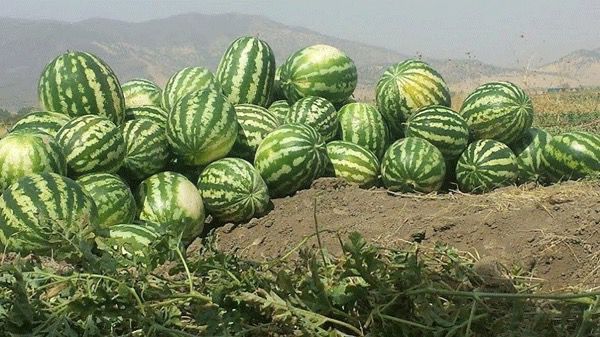Penjwen, a town located about 96 kilometers from Sulaymaniyah, is known for producing some of the most sought-after watermelons in Iraq. When the first crop ripens each year, it quickly disappears from the market, with demand spreading far beyond the local region. Penjwen’s watermelon is a beloved variety in Kurdistan, and it is distributed widely to central and southern Iraq, as well as to other cities across the region.
The annual arrival of Penjwen watermelons at city markets is the result of years of hard work and significant investment by local farmers. However, there is growing concern among the farming community over the import of Iranian watermelons, which they argue undermines the sales of their homegrown produce. Farmers in Penjwen are particularly concerned about the timing of these imports, which often coincide with the peak local harvest. They say that once their watermelons are in season, they are shipped to markets in cities like Erbil, Sulaymaniyah, and Kirkuk, as well as to central and southern Iraq.
Thanks to Penjwen’s fertile soil, expansive agricultural land, and favorable climate, the town produces a large quantity of watermelons each year—more than 50 tons annually. Yet, despite this bountiful harvest, local farmers have struggled to secure adequate support. Without government assistance, the economic returns on their watermelon crop have not kept pace with the effort and investment required to produce it.
Farmers believe that with the right government support, Penjwen’s watermelon production could not only satisfy domestic demand but also be expanded for export beyond the region, boosting the local economy and improving livelihoods.
Each year, over 2,000 farmers work the agricultural lands of Penjwen, cultivating a variety of summer crops, with watermelon standing out as one of the region’s most iconic agricultural products. Yet, despite its fame, the potential of Penjwen’s watermelon sector remains largely untapped.

